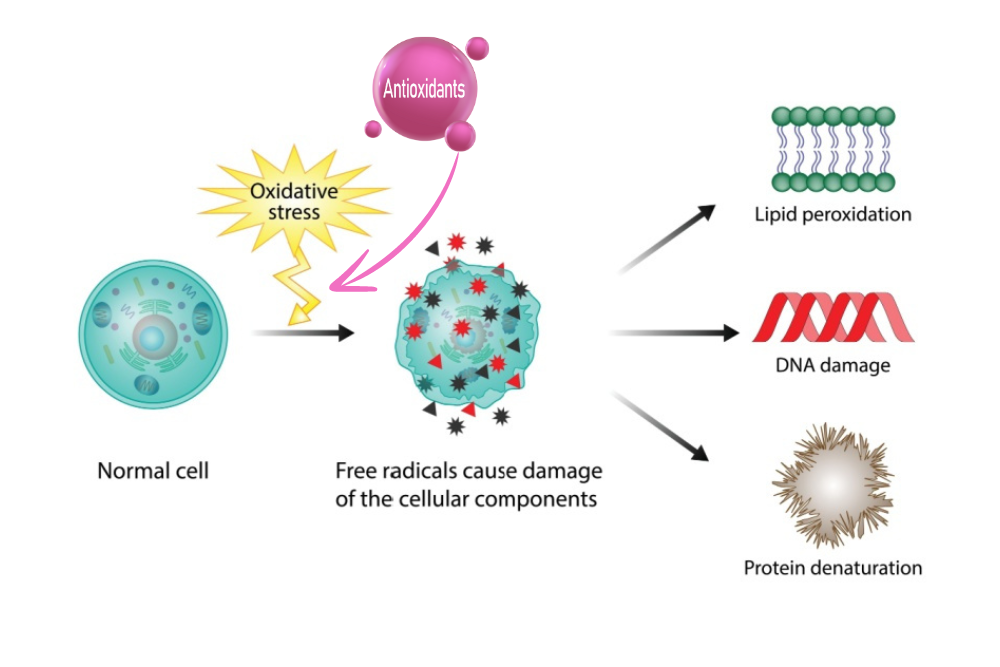What's On This Page?
ToggleToday, I am diving into the world of bioflavonoids specifically quercetin, and its cousin dihydroquercetin (DHQ). Whether you’re a health enthusiast or just curious about the latest in natural supplements, understanding the nuances between these compounds can be a game-changer for your wellness journey!
DIHYDROquercetin has more unique properties. It’s naturally found in high quantities in onions, milk thistle, the Siberian larch tree, and more!
Dihydroquercetin is also known as “taxifolin,” and it is NOT a drug. It is a naturally occurring antioxidant and one that everyone should know about. I put this ingredient into my Vitamin C capsules because it makes the product one of the best in the world! Dihydroquercetin is more water-soluble than quercetin. This means it can dissolve more easily in your watery (hydrophilic) cells, so it is absorbed much better from your digestive tract. Better absorption can potentially make dihydroquercetin (DHQ) more bioavailable to the body’s cells, where it can exert its antioxidant benefits. It’s a bit more ‘slippery’ if you will, getting inside the cells easily.
It’s just as strong as quercetin, even stronger due to its easy absorption rate. Antioxidants help protect cells from damage caused by free radicals, which are unstable molecules that can harm cellular structures. This protective role can be crucial for overall health, particularly in reducing the risk of chronic diseases like heart disease and cancer.*
In summary, dihydroquercetin might be more metabolically active due to its better solubility and strong antioxidant properties, potentially leading to more effective absorption and utilization in the body.
The Conversion of Quercetin to DHQ
Now let’s explore why DHQ might be the superior choice and delve into its top medicinal benefits.
Dihydroquercetin (DHQ) vs. Quercetin: What’s the Difference?
Enhanced Bioavailability: We’ve talked about the enhanced solubility which makes it gentler on the stomach. One of the significant challenges with quercetin is its inferior bioavailability. In simple terms, quercetin is not easily absorbed by our bodies, which may limit its effectiveness. Dihydroquercetin, however, boasts significantly better bioavailability. Studies have shown that DHQ is more water-soluble and can be absorbed more efficiently by the human body, making it a more potent option for supplementation.
Superior Antioxidant Power: Quercetin is renowned for its antioxidant properties, but DHQ is more efficient and stronger. Dihydroquercetin is reported to have a higher antioxidant capacity due to its unique chemical structure and the fact that it’s more slippery.
This means it can neutralize free radicals more effectively, protecting many more cells. from harmful oxidative stress which can increase the risk of cancer due to DNA damage. See my graphic below about how antioxidants work to prevent harm to cells. In that graphic, I’ve indicated antioxidants with the pink bubble (and that’s where you can think of quercetin and DHQ).
Improved Anti-inflammatory Properties: While both quercetin and DHQ exhibit anti-inflammatory effects, DHQ has been shown to be more effective in reducing inflammation. This makes it particularly beneficial for conditions like arthritis and other inflammatory disorders. Research indicates that DHQ can inhibit the production of pro-inflammatory cytokines more efficiently than quercetin.

Enhanced Cardiovascular Benefits: Both quercetin and DHQ contribute to cardiovascular health, but DHQ seems to have an edge. DHQ’s superior antioxidant and anti-inflammatory properties translate to better protection for your heart and blood vessels. Studies suggest that DHQ can more effectively reduce LDL cholesterol levels and prevent the oxidation of LDL ((low-density lipoprotein) particles, which is a crucial factor in preventing atherosclerosis.
Do you happen to have high levels of LDL cholesterol (often referred to as the “bad” cholesterol)? Having high levels of LDLs can increase your risk of more lipid peroxidation which is associated with atherosclerosis, heart disease, and certain types of cancer. Look up at my graphic, see the right side where lipid peroxidation occurs after exposure to free radicals.
Better Support for Immune Health: Immune support is another area where DHQ shines brighter than quercetin. DHQ enhances the body’s defense mechanisms more robustly, thanks to its superior absorption and bioactivity. It has been found to boost the production and activity of immune cells, providing a stronger defense against infections and illnesses.
What is Lavitol? It’s in my Vitamin C formula…
Lavitol, a premium form of dihydroquercetin (DHQ), is a standout ingredient in my popular dietary supplement Vitamin C with natural bioflavonoids. My formula is not corn-derived, it is 100% natural for maximum efficacy. People with kidney disease appreciate this as many other blends of “C” out there contain UNnatural ingredients that promote stone formation. The powerful combination in my supplement works synergistically to enhance antioxidant protection, bolster immune health, and support cardiovascular function.* Click here to LEARN MORE.
Lavitol™ DHQ is known for its superior bioavailability, ensuring that your body absorbs and utilizes these essential nutrients effectively to improve your body’s natural defenses.*
Top 5 Medicinal Benefits of Dihydroquercetin
- Powerful Antioxidant Protection: Dihydroquercetin is a powerhouse when it comes to neutralizing harmful free radicals. This action helps protect your cells from damage, slows the aging process, and reduces the risk of chronic diseases such as cancer and heart disease. Its superior antioxidant properties compared to quercetin make it an excellent choice for maintaining overall health.
- Superior Anti-inflammatory Effects: Inflammation is at the root of many chronic conditions, including arthritis, diabetes, and cardiovascular diseases. DHQ’s potent anti-inflammatory properties help reduce inflammation more effectively than quercetin, providing relief from symptoms and potentially slowing disease progression.
- Cardiovascular Health Support: Heart disease remains one of the leading causes of death globally. DHQ helps protect your cardiovascular system by lowering LDL cholesterol levels, preventing LDL oxidation, and improving blood vessel function. This multi-faceted approach ensures better heart health and reduces the risk of heart attacks and strokes.
- Enhanced Immune Function: A strong immune system is essential for fighting off infections and staying healthy. DHQ boosts your immune function more effectively than quercetin, enhancing the production and activity of immune cells. This makes DHQ a valuable ally in maintaining your immune health and resilience.
- Skin Health and Anti-Aging Benefits: DHQ’s antioxidant properties also translate to significant benefits for your skin. By neutralizing free radicals and reducing inflammation, DHQ helps maintain healthy, youthful skin. It can reduce the appearance of wrinkles, improve skin elasticity, and protect against damage from UV rays and environmental pollutants.
Natural Alternatives to Pharmaceuticals
Exploring natural supplements like DHQ can offer numerous health benefits with fewer side effects compared to conventional medications. While DHQ is a potent natural compound, it’s always essential to consult with a healthcare professional before starting any new supplement regimen, especially if you have underlying health conditions or are taking other medications.
Medications and DHQ: A Synergistic Approach
Sometimes, combining natural supplements with traditional medications can provide a synergistic effect, enhancing the benefits of both. Here are a few medications that might work well alongside DHQ:
- Atorvastatin (Lipitor): DHQ can help manage cholesterol levels naturally, potentially reducing the required dose of statins. By lowering LDL cholesterol and preventing its oxidation, DHQ supports cardiovascular health, allowing for a more holistic approach to managing hyperlipidemia. I mention this very popular medication in another blog I wrote about bad dreams, you may want to read it here: Beyond The Bad Dream: Exploring 20 Nightmare Triggers And Treatments
- Ibuprofen (Advil): The anti-inflammatory effects of DHQ might complement nonsteroidal anti-inflammatory drugs (NSAIDs), possibly allowing for lower dosages. This combination can provide effective relief from pain and inflammation while minimizing the risk of side effects commonly associated with long-term NSAID use, such as gastrointestinal issues. I mention ibuprofen in another blog that I wrote about swallowing difficulties, you may be interested in Causes and Solutions for Dysphagia.
- Metformin (Glucophage): For those managing diabetes, DHQ’s antioxidant properties can provide additional protection against oxidative stress-related complications. This can enhance metformin’s effectiveness in controlling blood glucose levels and may offer extra support in preventing diabetes-related damage to tissues and organs. By the way metformin is a potent drug mugger of B12 which is needed for healthy nerves and neuropathy.
- Aspirin: As a common blood thinner, aspirin’s effects can be complemented by DHQ’s anti-inflammatory and antioxidant properties. This combination may enhance cardiovascular protection, particularly in individuals at risk for heart disease or stroke.
- Antihypertensives (e.g., Lisinopril, Amlodipine): DHQ’s ability to improve endothelial function and reduce oxidative stress can support the efficacy of antihypertensive medications. This can help in better managing blood pressure levels and reducing the overall cardiovascular risk.
- Antidepressants (e.g., SSRIs like Sertraline or Fluoxetine): The mood-enhancing and neuroprotective effects of DHQ, due to its anti-inflammatory and antioxidant properties, may complement the action of antidepressants. This combination can potentially provide a more comprehensive approach to managing depression and anxiety, improving overall mental health outcomes. Here are 5 Tips to Boost Serotonin Naturally.
- Antiallergy Medications (e.g., Loratadine, Cetirizine): DHQ’s natural antihistamine effects can work alongside traditional antiallergy medications to reduce symptoms more effectively. This synergy can help manage allergic reactions with possibly lower doses of pharmaceutical antihistamines. Do you have bad allergies? If so, there’s a thing called POLLEN FOOD SYNDROME.
By incorporating DHQ with these medications, you can potentially enhance their therapeutic effects, reduce required dosages, and achieve a more balanced approach to health management. Always consult with a healthcare professional before combining supplements with medications to ensure safety and efficacy.
Conclusion
In conclusion, dihydroquercetin (DHQ) emerges as a superior alternative to quercetin due to its enhanced bioavailability, superior antioxidant and anti-inflammatory properties, and better support for cardiovascular and immune health. Incorporating DHQ into your wellness routine can provide numerous benefits, from protecting your heart and boosting your immune system to maintaining youthful skin and reducing inflammation. Taking this supplement along with certain medications may enhance the effect. It’s something to discuss with your doctor.
Quercetin and dihydroquercetin (DHQ) are generally considered safe for most people when taken in appropriate doses. However, some potential negative effects and considerations include:
Gastrointestinal issues: High doses can cause stomach upset, nausea, or diarrhea.
Kidney health: Very high doses might affect kidney function.
Drug interactions: Both quercetin and DHA can enhance the effect of blood thinners, and antibiotics potentially altering their effectiveness.
Potential allergies: As with any supplement, there is a risk of allergic reactions, although this is rare.
Both should be used with caution in individuals with pre-existing health conditions or those taking other medications. It’s always best to consult with a healthcare provider before starting any new supplement regimen.
Remember, while natural supplements like DHQ offer promising benefits, they should complement a healthy lifestyle and not replace professional medical advice or treatment. Stay informed, consult with your healthcare provider, and make choices that best support your health and well-being.

Suzy Cohen, has been a licensed pharmacist for over 30 years and believes the best approach to chronic illness is a combination of natural medicine and conventional. She founded her own dietary supplement company specializing in custom-formulas, some of which have patents. With a special focus on functional medicine, thyroid health and drug nutrient depletion, Suzy is the author of several related books including Thyroid Healthy, Drug Muggers, Diabetes Without Drugs, and a nationally syndicated column.



